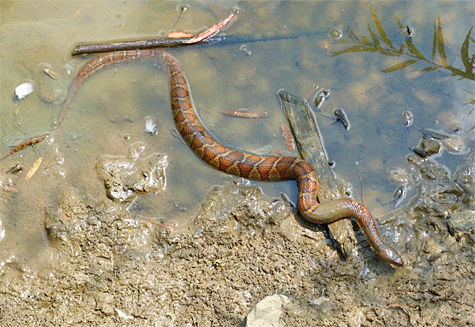
The water in the Wetlands is as low as it’s been for more than four years. Normally, most of the Wetland’s stumps and snags are not apparent, being covered by the water. But each day more and more water is lost to evaporation. The low water level is both good and bad.
The lower water concentrates tadpoles and fish, making their capture more likely by herons, kingfishers, raccoons and other predators. That’s good for the predators but bad for the fish and tadpoles.

The exposure of more stumps in the Wetlands creates more perches for turtles to bask. Of course, if the temperatures are in the 90s and up, the turtles would rather stay submerged than stew in their shells on a stump. A little early morning and late afternoon bask is in order for those really hot days.
Logically, the water level in our area’s reservoirs is also low, exposing mudflats that are typically under water. Migrating shorebirds take advantage of the mudflats to rest and feed. Both Jordan and Falls Lakes are currently hosting shorebird species on exposed mudflats. Our little Wetlands may also attract a shorebird or two as the muddy shoreline increases in width. That’s good for me and it’s good for the shorebirds. I (potentially) get to record a new shorebird for the Museum’s bird checklist and the shorebirds get to fatten up and rest.
Hurricane Irene may bring us some water in the form of rain this weekend. The storm, if it moves inland at all, may also bring in a few birds that were either caught up in the storm or that were in the process of migrating and who decide to sit it out here until the storm passes. That would be good for me, because I get to see the birds, but not necessarily good for the birds who would be delayed in their movements. Hurricanes are definitely not good for migrating birds.
I’ll let you know what happens.
Have a good one!